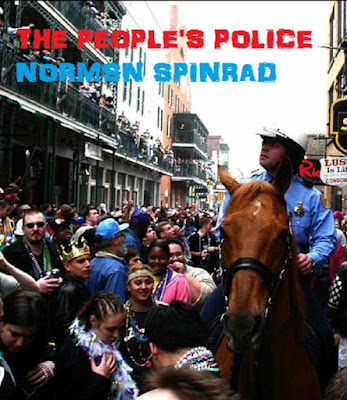I consider this to be one of the major publishing events of 2023. Black Empire, George S. Schuyler's long, lost proto-Afrofuturist/badass sci-fi classic is back in a new edition. It deserves to be an international bestseller, with a movie and graphic novel adaptations.
Why am I so impressed? When I read the original book publication from 1991 (my unending thanks to Paul Di Fillipo) it blew my mind, which I thought was impossible. Even back then I was a jaded veteran of wallowing in the weird.
So, what about it makes it such a brain blaster? Uh-oh, here I go . . .
First, it is historically significant in being a rare example of science fiction written for a black audience. Back in the 1930s the black-owner Philadelphia Courier published a fiction supplement to attract readers Schuyler who worked for them as an investigative reporter, contributed stories under pseudonyms. Black Empire his final effort, published as two serials.
It’s the story of Henry Belsidus, a Harlem doctor, treats rich white women, and uses his wealth to create the Black International, an organization of young black people he has cultivated dedicated to uplifting the race (“Black genius against the world”) by any means necessary—even if these means are fascistic and terroristic. They take revenge against “white world supremacy” in America, and then go on to reconquer Africa, and send Europe into a new Dark Age. He comes off as both a hero and a villain.
Schuyler didn’t take it–or any of the other fiction he wrote for the Courier–seriously, dismissing it all as “hokum,” but as a protégé of H.L. Menchen, a satirical attitude comes through. I probably should warn that there is something to disturb–or even offend–just about everybody.
And I would like to go on the record as saying that Black Empire is impressive science fiction. Notes in this edition track the sources of the ideas, showing that this is what happens when a brilliant mind, keeping track of what’s going on, is allowed to relax and play with it all, unleashing a powerful imagination.
I think he had fun. He urged the Courier to provide illustrations to attract more readers, which they never did. Too bad. It is rich in imagery which would inspire an artist. Maybe they still can . . .
Both editions have a list of Shuyler’s Courier fiction–if only they could be found and republished!--and notes for more spec fic that, if written, would no doubt be as interesting.
You should get it and read it. I need to do the same with his more “serious” novel Black No More, in which a scientist finds a way to make black people white.



















